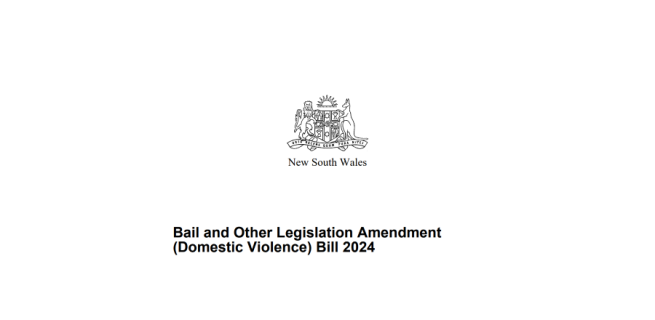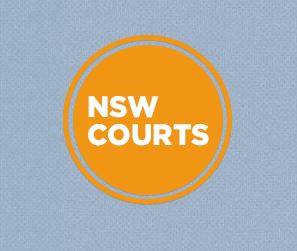By Paul Gregoire and Ugur Nedim
New South Wales police officers found the body of Molly Ticehurst in the town of Forbes on 22 April this year, before taking her former partner Daniel Billings into custody and charging him with the offence of murder, which he allegedly committed whilst out on bail in relation to a series of serious domestic violence offences committed against the victim.
The public outcry around Ticehurst’s preventable and brutal death led the Minns government to announce it would toughen bail laws for alleged domestic violence offences, which sparked legal and civil liberties experts to decry yet another kneejerk law-making response as counterproductive and in fact, part of the problem.
Former NSW Magistrate David Heilpern, however, identified an anomaly, which revealed that a change to the system was needed and not draconian laws, as a court registrar had granted Billings bail, while the ex-judicial officer considers it must be a judge or a magistrate making these calls.
And New South Wales Labor did take heed of Heilpern’s suggestion when considering its response to the murder, but the governing major party seems to have failed to comprehend the warnings against more tough-on-crime measures, due to their exacerbation of violence rather than reduction of it.
Indeed, introduced on 15 May, the Bail and Other Legislation Amendment (Domestic Violence) Bill 2024 contains laws ensuring more unconvicted people are detained, which will disproportionately affect First Nations communities, and in some cases, result in remanding Aboriginal women victims.
Legislated kneejerk response
“Many of the representations I received from Forbes and from all over NSW requested that the government change the law to provide better protections for people who have been subjected to serious domestic violence,” said NSW Labor attorney general Michael Daley on tabling the bill.
But the chief lawmaker neglected to identify that the reason many in the community have the same go-to kneejerk reaction to violent crime as politicians, which involves calling for more severe tough-on-crime measures, is because the government has been presenting this as the solution for decades.
The 14 May press release outlines what the domestic violence bail reforms involve, including “changes to weekend bail courts across NSW, to ensure bail decisions are made by magistrates… with consultation on the design and rollout of the scheme”, which can be done via audio-visual link.
Yet, the bill itself does not include a law establishing this change, so it appears Heilpern’s suggested “swift review” of the decision-making process to prevent unqualified court registrars from making bail decisions in relation to serious domestic violence, is being reformed without need of legislation.
So, while it appears that Heilpern’s suggestion, informed by his years on the bench and supported by the NSW Council for Civil Liberties, has been heeded by the Minns government, the domestic violence Bail Amendment has nothing to do with this, as it solely contains kneejerk laws rejected by legal experts.
Expanding show cause
The main crux of the bill is it will expand the offences to which the “show cause” requirement under section 16B of the Bail Act 2013 (NSW) will apply, and this involves incorporating “serious domestic violence offences” and the coercive control offence, which takes effect in this state from 1 July.
The Coalition amended bail law in 2014, so that rather than, as originally was the case, prosecutors have to show reason as to why bail should be refused an accused, when it comes to certain serious offences, the onus is now on the defendant to show cause as to why bail should be granted.
Tougher bail laws have been criticised for increasing the remand population, with around 44 percent of inmates in NSW prisons in March having been refused bail. And show cause offences, which comprise crimes listed in section 16B, will be expanded to include serious domestic violence offences.
The legislation defines a serious domestic violence offence as those appearing under part 3 of the Crimes Act 1900 (NSW), which carry more than 14 years prison time and have been perpetrated by an intimate partner.
Soon to appear under section 54D of the Crimes Act, the offence of coercive control, which involves controlling and abusive behaviour by an intimate partner, can serve to target First Nations women victims of domestic violence as prejudicial policing systems often see Aboriginal victims charged.
And due to systemic criminal justice prejudice, more First Nations domestic violence suspects, as well as complainants, will be remanded than their non-Indigenous counterparts under the new law, at a time when only 3 percent of the NSW population is Indigenous, yet it constitutes 31 percent of New South Wales adult inmates.
Other major bail reforms
Another amendment is that under section 18 of the Bail Act, which includes matters a bail authority can consider when determining whether to grant bail to an accused, so that the behaviours captured under the Crimes (Domestic and Personal Violence) Act 2007 (NSW) are included.
These behaviours appear under section 6A(2) of the Crimes (Domestic and Personal Violence) Act, which involves consideration of physical abuse or violence, including strangulation and sexual assault, as well as any history of animal abuse or stalking.
The Domestic Violence Bail Amendment further inserts section 28B into the Bail Act, which contains a stipulation that defendants who were required to show cause due to a serious domestic violence offence and were then granted bail, are made to wear an electronic monitoring device as a condition of bail.
And the final change made is that serious domestic violence and coercive control will be inserted into section 40 of the Bail Act, so stays of release apply, which means if bail is granted, a prosecutor can apply for a stay that sees the accused continue to be held until a higher court reconsiders bail.
Social programs not criminal law
“These legislative reforms come after the NSW government announced a $230 million package to improve the response to domestic and family violence through primary prevention, early intervention and crisis response measures,” the 14 May NSW government press release outlines.
Announced on 6 May, and to be distributed over the next four years, the Minns government DFV package involves funding programs that assist women and their children fleeing domestic violence situations, along with an expansion of case management support.
As the calls for tougher laws rose in the constituency, these other measures, that apply to the community and attempt to prevent crime before it is committed, are what the DFV sector has been calling for, not another tough-on-crime crackdown that does nothing to stop domestic violence.
“Real investment is required,” Domestic Violence NSW chief executive Delia Donovan said in an April statement. “We know that domestic and family violence is preventable. There is a clear and immediate need to invest in changing community attitudes and behaviours.”
“Addressing the drivers of gendered violence is key to stopping it before it starts,” the chief executive added. “The number of lives saved depends on the funding the NSW government is willing to commit to in its upcoming budget.”











